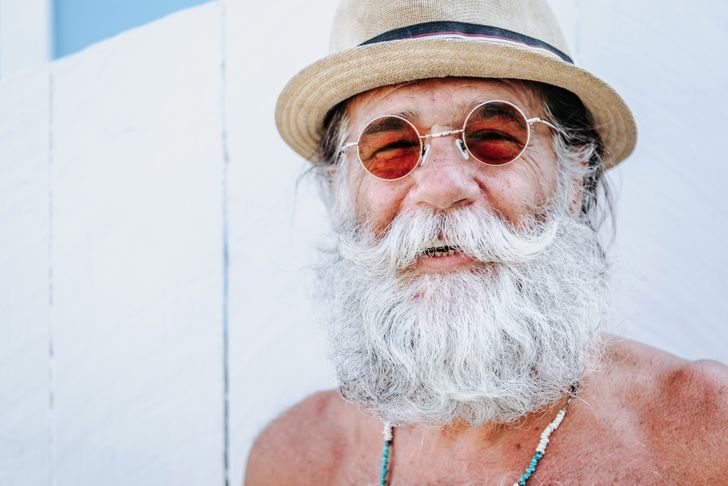It was Brian Carter, the American author, speaker, and comedian that said, "Even people who are not sick may not have optimal wellness." Health and wellness are terms that have been synonymous for much of history but have experienced a semi-recent revitalization in their definitions and implications in everyday life. The two terms are both vital to the overall "actualized person" and have a complex, ever-changing relationship. Although many people may still consider health and wellness to be one-in-the-same, they are quite different in the ways they impact society and how they should be implicated in the lives of the general population.
Whereas the term of health, defined as the "general lack of physical ailments" by Merriam Webster's Dictionary, has been openly acknowledged and accepted for several millennia, the idea of "wellness" as we are coming to know it is relatively new. Wellness encompasses much more than physical health, including occupational, social, intellectual, spiritual and emotional health. Wellness tends to be a much more holistic view of health than health itself.
A general lack of proper appreciation for wellness before the 1990's and 1980's has resulted in a grievous amount of chronic illnesses such as COPD, heart disease, diabetes, and hypertension that could have been avoided in the first place. Before the surge of wellness as a holistic view of health, the effort of doctors was primarily focused on reversing a disease once it had already occurred. Dr. Mladen Golubic comments in her January 2013 article titled Lifestyle Choices: Root Causes of Chronic Diseases, that, "Poor lifestyle choices, such as smoking, overuse of alcohol, poor diet, lack of physical activity and inadequate relief of chronic stress are key contributors in the development and progression of preventable chronic diseases, including obesity, type 2 diabetes mellitus, hypertension, cardiovascular disease and several types of cancer." Although she seems to focus on physical problems, such as poor diet and lack of physical activity, she also mentions the relief of stress—which is paramount to the overall view of wellness. Wellness cannot always be solidly measured, unlike blood tests, x-rays, and specialty tests were done in order to measure physical health.
The lack of wellness in the clinical realm has resulted in an aging society that is overstressed, overworked, and ill-equipped to deal with the overarching theme of wellness. It is somewhat ironic as Maslow's Hierarchy of Needs, which is taught in most high-schools, stresses the importance of self-actualization, a comprehensive and holistic understanding of one's self. The fact that the medical industry focused primarily on physical health for several millennia testifies that a change is needed.
Younger generations such as the Millennial generation and Generation Y are beginning to be taught and understand the concept of wellness vs. health. Though not perfect, high school and college students of modern times have a shaky understanding of wellness—that it goes much deeper than the skin. This renaissance in health can be attributed to high schools and universities alike offering classes to assist their young people in understanding wellness in comparison to health. It is a positive start in rediscovering the medical world.
I personally plan to move into the writing/editing realm in my future career. Believe it or not, wellness has a vital place in the humanities and, without it; the humanities could not be what it is. The humanities "are the study of cultures around the world and give us the opportunity to discuss similarities and differences between these cultures." However, the humanities also employ, "the opportunity to reflect on the impact of science (the sciences) on human culture." Wellness has an intimate relationship with the study of art, literature, etc. due to the six dimensions of wellness. Without understanding of the occupational, social, intellectual, spiritual and emotional dimensions, people who work in the humanities world would, without a doubt, begin to sputter in their passion, work themselves into the dirt and lose that which makes them special, the drive to constantly learn. Book editors must be able to collaborate positively and efficiently with potential authors (the social wellness realm), art curators oftentimes must have a personal and well-researched connection to the art they are displaying (spiritual/emotional wellness realms) and writers must understand the ever-changing climate of the publishing world (the occupational wellness realm). Without an understanding of the six dimensions of wellness, those working in the humanities surely couldn't do so for long.
Social practices and wellness have a complicated and ever-shifting relationship. The lack of understanding of wellness led to many social practices that resulted in chronic illnesses, as mentioned earlier. High fat and high sodium diets, when combined with lack of sleep and high-stress careers, led many Baby Boomers to develop diabetes, obesity, hypertension and heart disease. Coping mechanisms (through the spiritual and emotional wellness dimensions) were not effectively learned and implicated in order to avoid such illnesses. In a way, the lack of wellness as a whole led to the current, destabilized health of older generations. On the flipside, however, the revitalization of wellness could prove to be the saving grace of younger generations. Archaic habits such as smoking, high-fat diets, and not learning stress-management have fallen by the wayside. Many young people in high school and college are learning, by way of health and wellness classes, that health is much more than how their bodies run. Research and proof have arisen that health encompasses far more than the physical functioning of a body, it is difficult to argue with figures that can be proven and young people are taking note. The lack of understanding of wellness dictated social practices that led to chronic illness, but the understanding of wellness can dig our culture out of chronic illness just the same. A complete, holistic view of health is just what the doctor ordered, and its name is wellness.
Whereas older generations, i.e., Baby Boomers and before, tended to focus more so on physical health, Generations X, Y, and Millennials are coming to a more comprehensive understanding of overall wellness.
The shift in the understanding of "wellness" as a comprehensive concept seemed to have its origins in and around the 1970's. Amy Loracca comments in her June 2017 article, The Wellness Epidemic, that "In 1978, the New York Magazine ran a cover story on 'The Physical Elite,' the new class of people who had quit smoking and devoted themselves to working out". She also states, "Four decades later, wellness is not only a word you hear every day; it's a global industry worth billions — one that includes wellness tourism, alternative medicine, and anti-aging treatments."



 women in street dancing
Photo by
women in street dancing
Photo by  man and woman standing in front of louver door
Photo by
man and woman standing in front of louver door
Photo by  man in black t-shirt holding coca cola bottle
Photo by
man in black t-shirt holding coca cola bottle
Photo by  red and white coca cola signage
Photo by
red and white coca cola signage
Photo by  man holding luggage photo
Photo by
man holding luggage photo
Photo by  topless boy in blue denim jeans riding red bicycle during daytime
Photo by
topless boy in blue denim jeans riding red bicycle during daytime
Photo by  trust spelled with wooden letter blocks on a table
Photo by
trust spelled with wooden letter blocks on a table
Photo by  Everyone is Welcome signage
Photo by
Everyone is Welcome signage
Photo by  man with cap and background with red and pink wall l
Photo by
man with cap and background with red and pink wall l
Photo by  difficult roads lead to beautiful destinations desk decor
Photo by
difficult roads lead to beautiful destinations desk decor
Photo by  photography of woman pointing her finger near an man
Photo by
photography of woman pointing her finger near an man
Photo by  closeup photography of woman smiling
Photo by
closeup photography of woman smiling
Photo by  a man doing a trick on a skateboard
Photo by
a man doing a trick on a skateboard
Photo by  two men
two men  running man on bridge
Photo by
running man on bridge
Photo by  orange white and black bag
Photo by
orange white and black bag
Photo by  girl sitting on gray rocks
Photo by
girl sitting on gray rocks
Photo by  assorted-color painted wall with painting materials
Photo by
assorted-color painted wall with painting materials
Photo by  three women sitting on brown wooden bench
Photo by
three women sitting on brown wooden bench
Photo by 
 Photo by
Photo by  Photo by
Photo by  Photo by
Photo by  Photo by
Photo by 


 people sitting on chair in front of computer
people sitting on chair in front of computer



 all stars lol GIF by Lifetime
all stars lol GIF by Lifetime two women talking while looking at laptop computerPhoto by
two women talking while looking at laptop computerPhoto by  shallow focus photography of two boys doing wacky facesPhoto by
shallow focus photography of two boys doing wacky facesPhoto by  happy birthday balloons with happy birthday textPhoto by
happy birthday balloons with happy birthday textPhoto by  itty-bitty living space." | The Genie shows Aladdin how… | Flickr
itty-bitty living space." | The Genie shows Aladdin how… | Flickr shallow focus photography of dog and catPhoto by
shallow focus photography of dog and catPhoto by  yellow Volkswagen van on roadPhoto by
yellow Volkswagen van on roadPhoto by  orange i have a crush on you neon light signagePhoto by
orange i have a crush on you neon light signagePhoto by  5 Tattoos Artist That Will Make You Want A Tattoo
5 Tattoos Artist That Will Make You Want A Tattoo woman biting pencil while sitting on chair in front of computer during daytimePhoto by
woman biting pencil while sitting on chair in front of computer during daytimePhoto by  a scrabbled wooden block spelling the word prizePhoto by
a scrabbled wooden block spelling the word prizePhoto by 
 StableDiffusion
StableDiffusion
 StableDiffusion
StableDiffusion
 StableDiffusion
StableDiffusion





